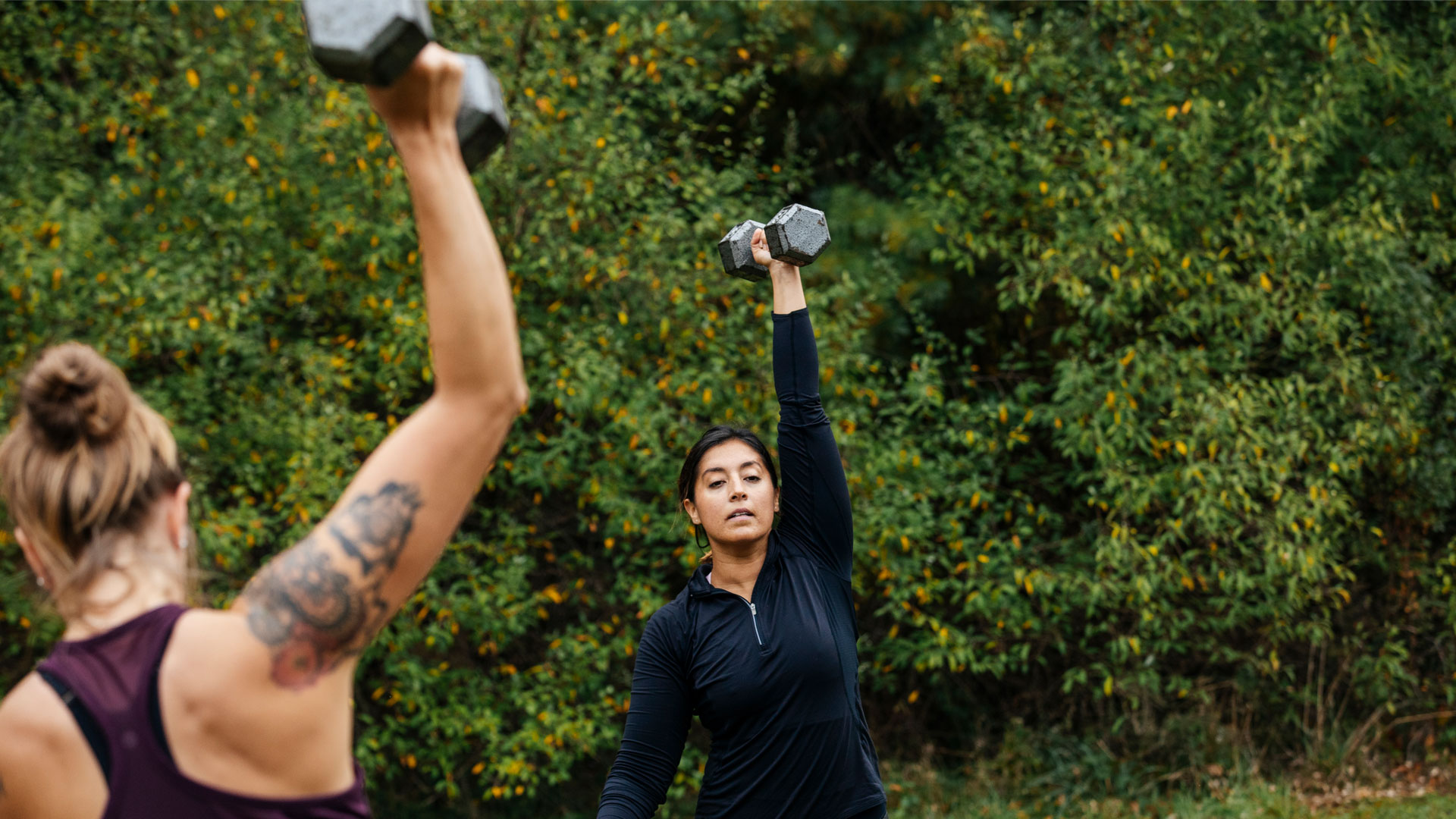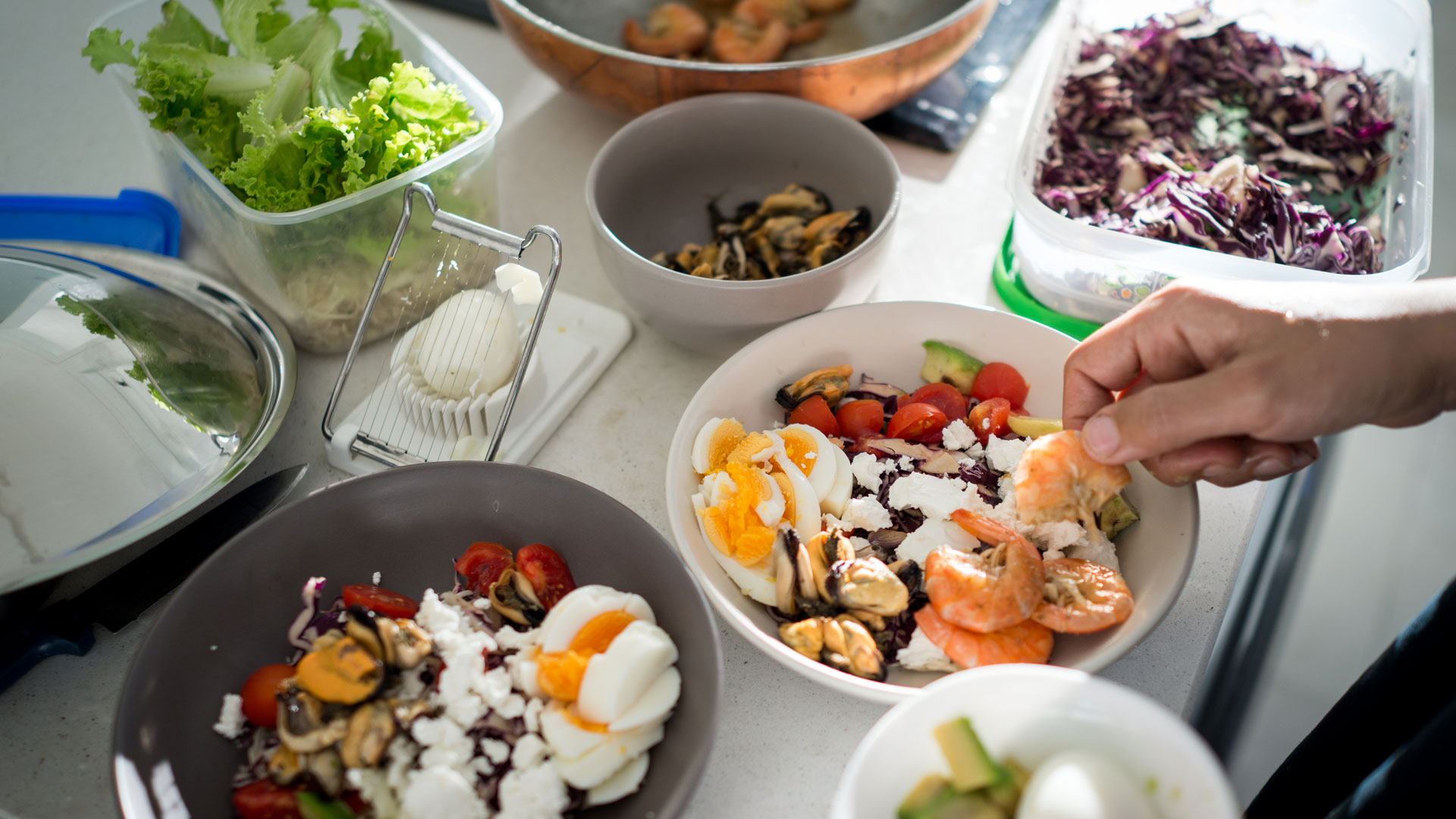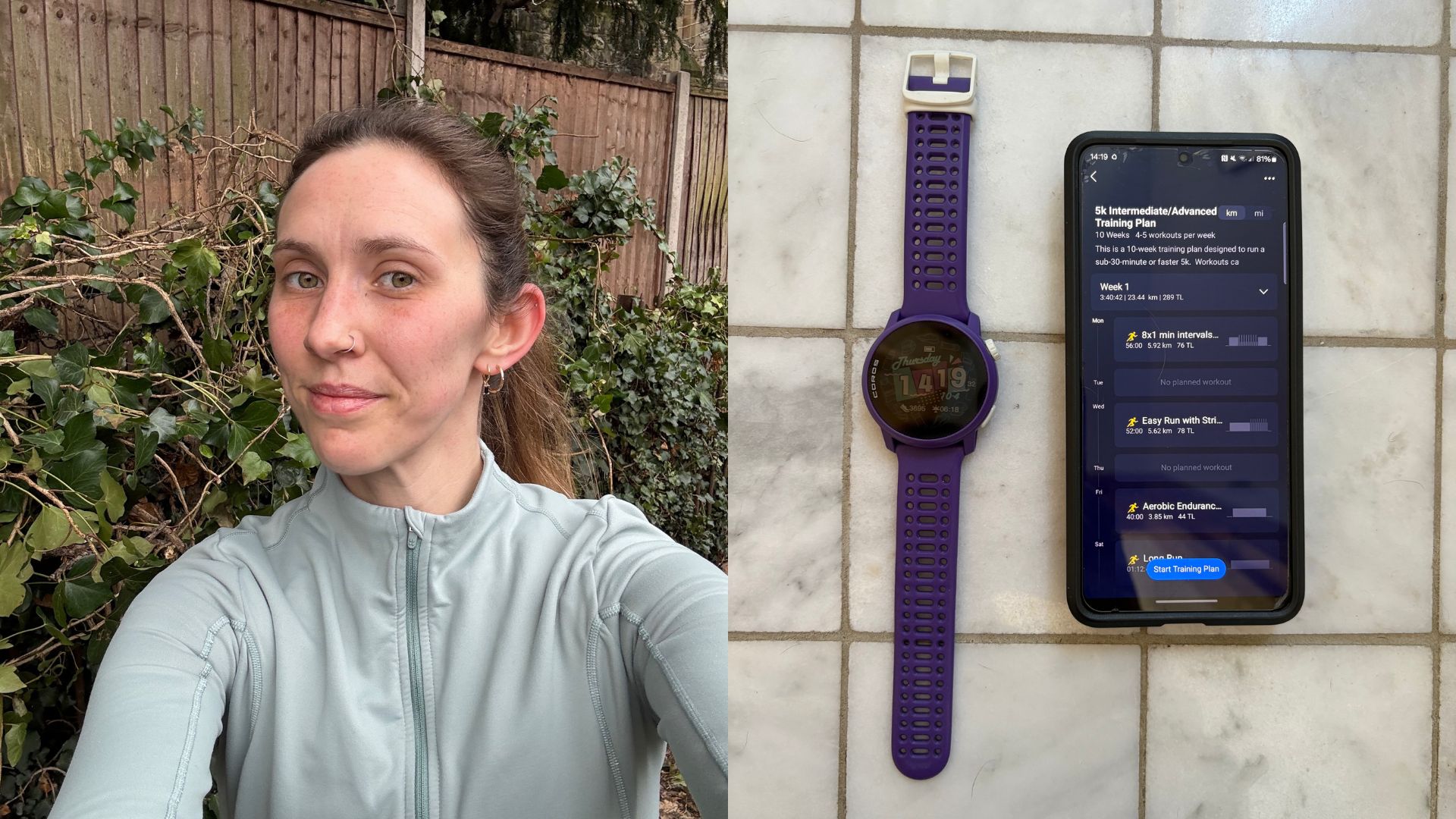Can you build muscle in a calorie deficit?
Can you build muscle in a calorie deficit? We spoke to an expert to find out


If you’ve been trying to lose weight, you might be wondering; can you build muscle in a calorie deficit at the same time? Balancing safely losing weight with trying to build muscle can be confusing and there are quite a few things to consider first.
First up, what exactly is a calorie deficit? Simply put, a calorie deficit is created when you consume fewer calories than your body burns. However, it is possible to build some muscle with the best adjustable dumbbells on a calorie deficit, although your first priority should be preserving the muscle mass you already have.
Sometimes when people lose weight, they lose muscle too. This is called weight-loss–induced muscle loss. If you are a regular exerciser who wants to improve your balance of fat and muscle, you can lose fat while strengthening your lean body tissue over time.
If you're an advanced exerciser or bodybuilder looking to gain large amounts of muscle while also losing large amounts of fat, you may find this challenging because those goals often conflict with one another. Read on to learn more about the process of muscle building, how calorie intake affects the amount of muscle you build and whether you can build muscle in a calorie deficit.
How does muscle building work?
For your muscles to undergo hypertrophy, another way of saying they get bigger, two conditions must be met. The first is the appropriate exercise stimulus. As explained by the American Council on Exercise, that can be:
- Mechanical (minor) damage from a challenging lifting session.
- Time spent under tension for your muscles.
- Metabolic fatigue - working your muscles to the point that they briefly run out of the fuel they need to contract.
David Starr has over 20 years of experience in helping athletes reach their goals. He explains a little more about muscle building, “Hypertrophy occurs as a response to mechanical loading along the length of the muscle. The size of the load and amount of times the load is moved are important. Whilst fast-twitch muscle is often associated with muscle growth and training is done over 30-60 seconds, in reality, all muscle fiber types have the capacity to grow and therefore hypertrophy can occur at a wide range of load sizes and repetitions. If a load is lifted to the exhaustion of the muscle, and that is repeated a few times in succession, it is likely that hypertrophy will occur.”
To build muscle you also need adequate rest between training sessions. Many experts and researchers recommend taking at least one full rest day between strength-training workouts for a given muscle group, sometimes more if the workout was really intense.
Get the Fit&Well Newsletter
Start your week with achievable workout ideas, health tips and wellbeing advice in your inbox.
Your nutrient and calorie intake are also important. As the International Sports Sciences Association explains, the ideal conditions for muscular building involve a small calorie surplus, which frees up the nutrients and energy for your body to restructure your muscles to be bigger and stronger.
Does your calorie intake affect how much muscle you build?

Starr explains the connection between calorie intake and muscle building “There is a link but only up to a point. Pure strength and power athletes are attempting to maximize the development of their muscles and therefore overeat rather than risking undereating and missing out on growth.”
“Bodybuilders also tend to add body fat after competitions to ensure that they always have sufficient energy available to grow. For those of us who would like to add muscle but aren't desperate to maximize our muscle development, there is no reason to eat a massive amount of food, and we would benefit from a healthy, balanced diet that includes a little extra energy to replenish what is used in training.”
The best fat-burning, muscle-building diet is rich in nutrients, including lots of whole grains, fruits, and vegetables, as recommended by the Department of Health and Human Services. But it also needs to be particularly rich in high-quality protein.
One study found that eating a high-protein diet can help protect muscle when cutting calories in an attempt to lose weight. Although all participants lost weight by lowering their calorie intake, those who consumed more protein lost less of their lean muscle mass. A study of obese patients had similar results.
Bear in mind that even though you can build muscle in a calorie deficit, you're not really creating the ideal circumstances for muscular hypertrophy; so your gains won't be as impressive as they would be without the calorie deficit.

Is it possible to build muscle in a calorie deficit?
Starr says that, yes, it is possible, “Muscle building is possible in an energy deficit. Whilst it is normal for people attempting to gain muscle to increase their energy intake, almost all humans have sufficient body fat to cover the energy needs of muscle growth. I have personally supported athletes to achieve this, however, it does require some focus. Ensuring a regular supply of at least 20g of high-quality protein throughout the day is important to help achieve muscle growth in an energy deficit, and this also helps to support the body's normal functions through a period of weight loss. My athletes may eat protein portions up to six times a day depending on their training needs and performance goals.”
However, Starr warns there are risks to overtraining with a calorie deficit. “There is a potential risk to high volumes of training whilst in an energy deficit which comes from a condition known as Relative Energy Deficiency in sport (RED-s). RED-s is the result of a large difference between the energy intake and output of a person which can cause disturbances to bone density, hormones (loss of menstrual cycle in women), and a variety of other symptoms. For this reason, I recommend that anyone trying to use a high volume of exercise to create an energy deficit should seek professional nutrition advice to ensure that their health isn't affected.”
For more on this, find out what is the fastest way to build muscle? Or, discover the best ways to ensure muscle recovery after workouts.
Catherine is a freelance journalist writing across titles such as Verywell Health, Healthline, The Daily Telegraph, Refinery29, Elle, and Vogue. She specializes in content covering health, fitness, wellness, and culture. A once reluctant runner, Catherine has competed in 30 running events in the past five years and looks forward to one day running the London Marathon.
-
 This is the exact running plan I followed for two months to finally get my 5K run time under 30 minutes
This is the exact running plan I followed for two months to finally get my 5K run time under 30 minutesAnd it helped me fall in love with running again
By Ruth Gaukrodger Published
-
 I increased my step count back to 10,000 a day after time off—here’s how I did it sustainably
I increased my step count back to 10,000 a day after time off—here’s how I did it sustainablyIt took me five weeks to get back to the ideal range
By Lou Mudge Published